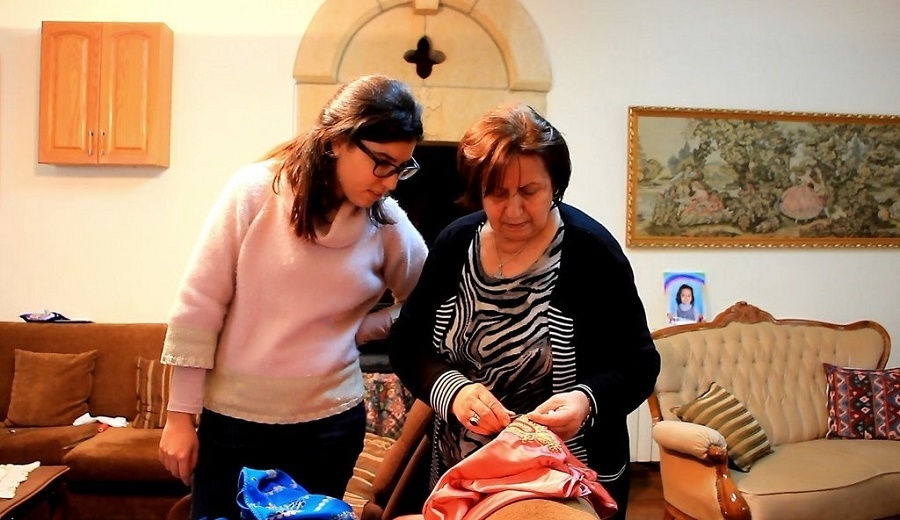Crowdfunding as a business model? Taita Leila in Palestine says yes

The idea of crowdfunding a fashion line is a familiar concept to Western fashion brands but few use the technique as the only sales method for individual designer lines.
Taita Leila is based in Ramallah and mixes traditional designs with modern clothing, inspired by the long tradition of Palestinian embroidery.
Founder Noora Husseini said the business model was to focus primarily on crowdfunding, with a threefold benefit: to reduce waste to zero, advertise without ‘advertising’ per se, see which designs are most popular, and as a way to better manage inventory.
Local Palestinian women are commissioned to make each piece that’s ‘funded’ or bought via a crowdfunding site, rather than having customers donate and hope the project makes it across the funding bottom line.
“Because we commission the women per piece, it is better to see our demand for the collection, and it helps the women artisans plan their time better too as it takes them a while to make it,” Husseini said.

The platform they’re using is Jordan-based Afkarmena.
Targeting fashion savvy, yet socially conscious people around the world, their goal is to raise $25,000.
As a made-to-order business, Husseini believes this is the best way to satisfy customers. “[It] helps our ladies plan their hand embroidery, and our followers must know they have to order while the campaign is running or miss out.”
Although last year Stabraq, an all-Egyptian clothes brand, raised over $12,000 to produce their trendy graffiti t-shirts, local use of fashion crowdfunding is limited. Western fashion lines such as Baubax, a travel jacket line that last year raised $9 million, going beyond their goal of $20,000, are well known.
Keeping family traditions alive
Taita Leila means ‘Grandmother Leila’ in Arabic and hails from Husseini’s grandmother Leila, who wrote the book The Art of Palestinian Embroidery.
Husseini is crowdfunding her latest collection after an initial campaign in 2015. “The target was to raise $25,000 to start the business, and we overshot it to $36,000 which was encouraging, especially as we had no product except for a few 'prototypes' and we sold pieces before releasing a single collection.”
The second collection focuses on the bottom half of the thobe (traditional dress), known as the Benayiq.
Each piece in the collection is named after a Palestinian city, drawing inspiration from the city for the designs and colors. The experience is highly personalized: once a customer places an order on the crowdfunding site, they are contacted directly by the Taita Leila team - Husseini and a colleague who is a touch point for the women making the clothes - to ask details about size and preferred color.
Buying ‘Palestine-Made’
All Taita Leila’s products are handmade by Palestinian women, found through women's cooperatives; needless to say, once Husseini finds skilled women she sticks with them.
“They are mostly from villages or rural areas in Palestine who have little to no work and want to earn a small income for their family. The idea was to make a marketable product that would sell and be of great quality while capitalizing on a ubiquitous skill that a lot of women have,” Husseini said.
Husseini believes email marketing is key to a successful campaign and what helped them exceed their goal with their first campaign.
“Those subscribers are the most invested in the story and our idea of family,” she said.
“Because we are a new brand, is hard to get customers to trust our product. Our quality is superior to what they are used to thinking when they hear the word ‘handmade’, but once they have ordered from us they tend to order again as they are pleasantly surprised.”
Husseini plans to work on another collection in the Spring. “It will be the final chapter in our "anatomy of a thobe" series, before we move on to more playful collections [like t-shirts and beachwear].”
Feature image: Um Nikola showing Husseini the couched stitch used in a blouse. (Image via Taita Leila, photo credit: Rafia Oraidi)


